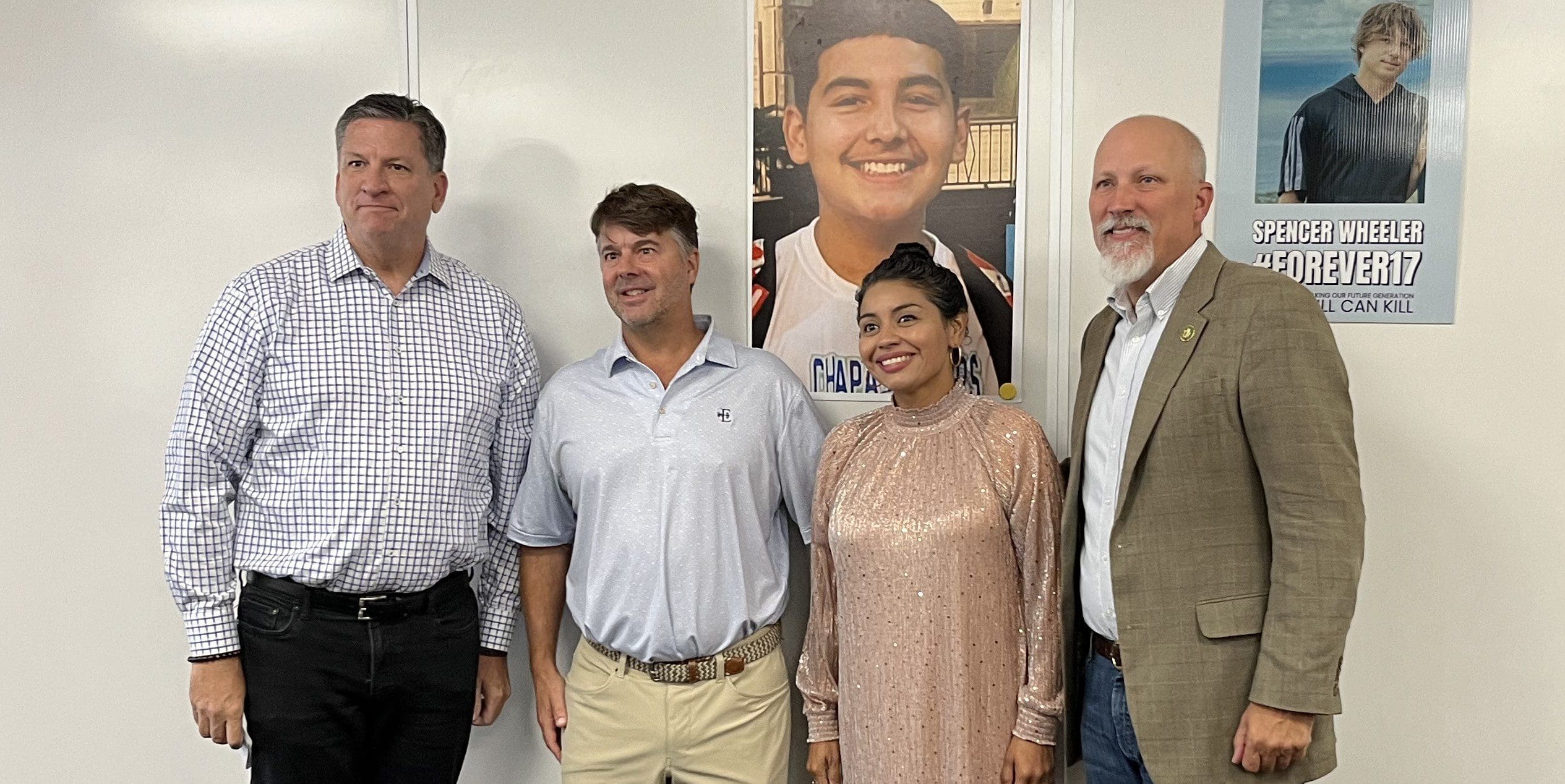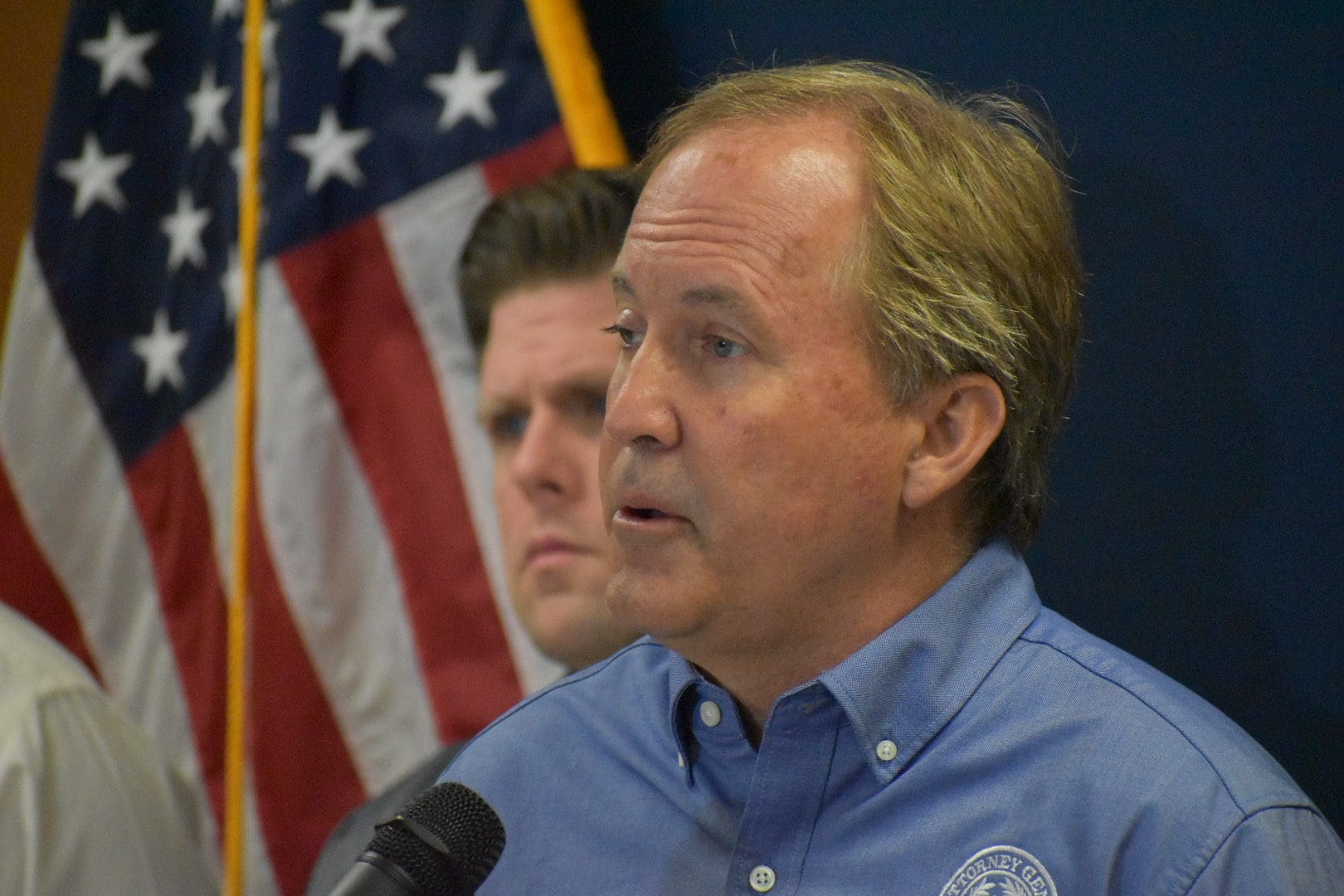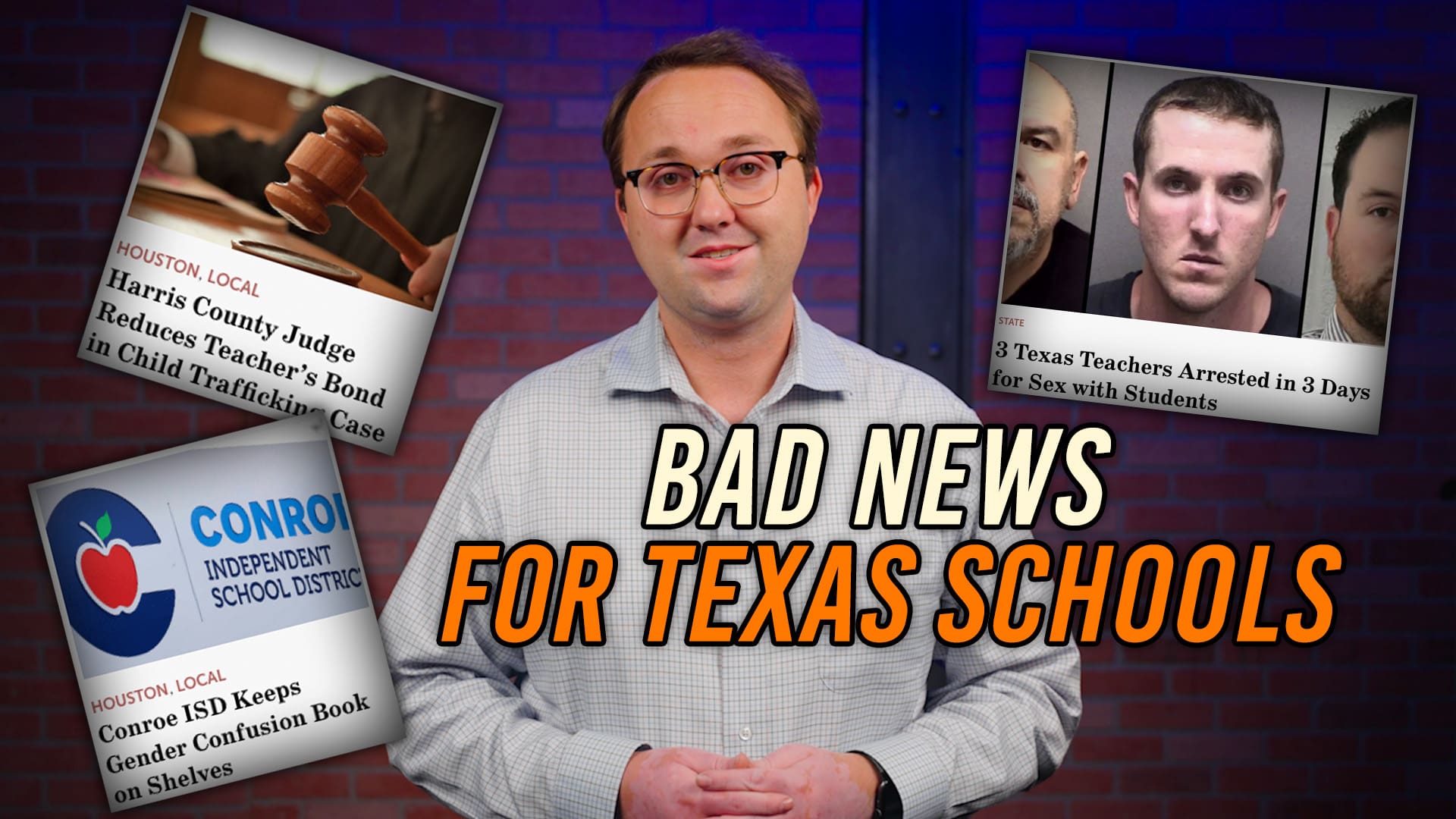DRIPPING SPRINGS—As the fentanyl crisis intensifies in schools across Texas, U.S. Rep. Chip Roy was joined by several parents, law enforcement, county officials, and school administrators at a roundtable event discussing the dangers of fentanyl.
Roy, a Republican representing Texas Congressional District 21, has been working to end the fentanyl crisis on both the state and federal levels.
Roy said the fentanyl epidemic is a “tsunami” at this point, and it’s reached an incredibly “pervasive level.”
According to Roy, the numbers are “extraordinary.” He said that the number of fentanyl-caused overdoses is approximately 200 a day.
His goal in hosting the panel was to spread awareness and listen to officials, law enforcement, and parents who are personally dealing with the fentanyl crisis.
With the Biden administration failing to address the open southwest border, thousands of Americans and hundreds of Texans are being poisoned by fentanyl yearly. Since March 2021, Texas law enforcement has seized over 359 million lethal doses of fentanyl.
Law Enforcement
Tyson Hodges, a recently retired employee of the U.S. Drug Enforcement Administration, joined the panel to explain the strength and toxicity of fentanyl as well as steps to take to combat the crisis.
Hodges claimed fentanyl overdoses are the leading cause of death for people between 18 to 45 years old and adolescent deaths due to fentanyl tripled between 2019 and 2021.
He shared that two of his agents had once gone out to a fentanyl overdose scene. Afterward, one of his agents said she’d taken all the necessary precautions (washed clothes separately, showered, etc.) so she didn’t have to worry about being contaminated by the fentanyl.
However, the next morning she was exposed to fentanyl residue when she picked up her notebook.
It took three doses of Narcan to bring her back. And once EMS arrived, they administered an additional two doses of Narcan to the agent.
“These are professionals that deal with fentanyl every day and try to not be exposed,” said Hodges. “However, even these professionals get exposed, and the drug is potent.”
Hays County Sheriff Deputy Anthony Hipolito said within the last year alone, there have been 51 fentanyl poisonings and 13 fentanyl-caused deaths in Hays County, which has a rough population of 255,397.
According to Hipolito, six out of 10 illicit counterfeit pills are contaminated with deadly substances.
Parents
Three parents who lost their children to fentanyl poisoning also attended the roundtable discussion.
Jeff Crownover lost his teenage daughter two years ago, Hunter Wheeler lost his 17-year-old son not even a year ago, and Janel Rodriguez lost her 15-year-old son a year ago—all to fentanyl.
Crownover pointed out that if there was a plane crash tomorrow, all walks of life were on the plane, and 150 people died, it would be major news for weeks. However, “that’s what we’re seeing every day” due to fentanyl, he explained.
His daughter was on medication for mental health issues at the height of the COVID-19 pandemic. At one point, she ran out of medication and had a mental breakdown. Crownover said that was when she decided to self-medicate.
The teenage girl picked up a single pill which she had been told was Xanax. The fake Xanax pill was actually fentanyl and caused her to overdose.
“A single pill is a weapon of mass destruction,” he said.
Wheeler said his son was exposed to drugs in middle school when he started using marijuana. This piqued his son’s interest in drugs. The night before his death, Wheeler’s son traded a pair of Virtual Reality goggles for 10 pills, which he was led to believe were Percocet.
He died after taking the second pill.
Wheeler has started spreading the phrase “one pill can kill” to remind people of the dangers of fentanyl.
Rodriguez explained that her 15-year-old son was experimenting with drugs when he died.
She said she did everything she knew to do as a parent to try to help him with his struggles, including randomly searching his phone, removing his bedroom door, and asking questions.
However, he was able to answer all of her questions and she eventually let it go. Shortly after, he died of fentanyl poisoning.
Rodriguez started a nonprofit in honor of her son called “The Forever 15 Project.” She has devoted all of her time to this nonprofit organization, where she explains to parents and children the dangers of fentanyl and offers help to any child who is struggling with an addiction.
Dripping Springs ISD
DSISD’s Director of Counseling and Health Services, Tisha Kolek, said she is working with the district to form a strong environment for children in the district.
The school district has two programs they hope will help with the fentanyl crisis within.
Program Light Speed is a program that monitors internet environments, such as Google searches and apps. This program alerts school officials to keywords regarding bullying, violence, self-harm, and explicit material (including drugs).
Robin Reed, DSISD’s coordinator of Health Services, said they have been training and preparing for the continuation of the fentanyl issue. She said they have distributed 36 boxes of Narcan strategically around buildings in the district.
Her goal is to make sure students are “heard and get the help they need.”
Hays County
Hays County Commissioner Walt Smith said now is the time to act.
“We are on the front lines of the crisis,” said Smith. “The devil is in the house now; he’s here.”
While Narcan is imperative, Smith said it is not a foolproof solution. He pointed out that kids will carry around Narcan and have their friends administer it to them so they can take a pill.
Since fentanyl is extremely potent, he noted one case where it took six doses of Narcan to bring a kid back.
“Having the band-aid before you get a cut is not the solution to not getting the cut,” Smith said. “Narcan is not the solution that puts an end to the problem.”
What’s Being Done
Throughout the regular 88th legislative session, lawmakers worked alongside parents to address the fentanyl crisis.
On June 17, Gov. Greg Abbott signed House Bill 3908, or Tucker’s Law, to require schools to provide comprehensive counseling and fentanyl education programs. That law took effect immediately.
Abbott also signed House Bill 6, which takes effect on September 1. This law will allow a person who provided fentanyl to another to be charged with murder in the case of a fentanyl-caused poisoning or overdose.
All members of the panel agreed there is more that can be done to end the fentanyl epidemic if more people are involved and educated.





